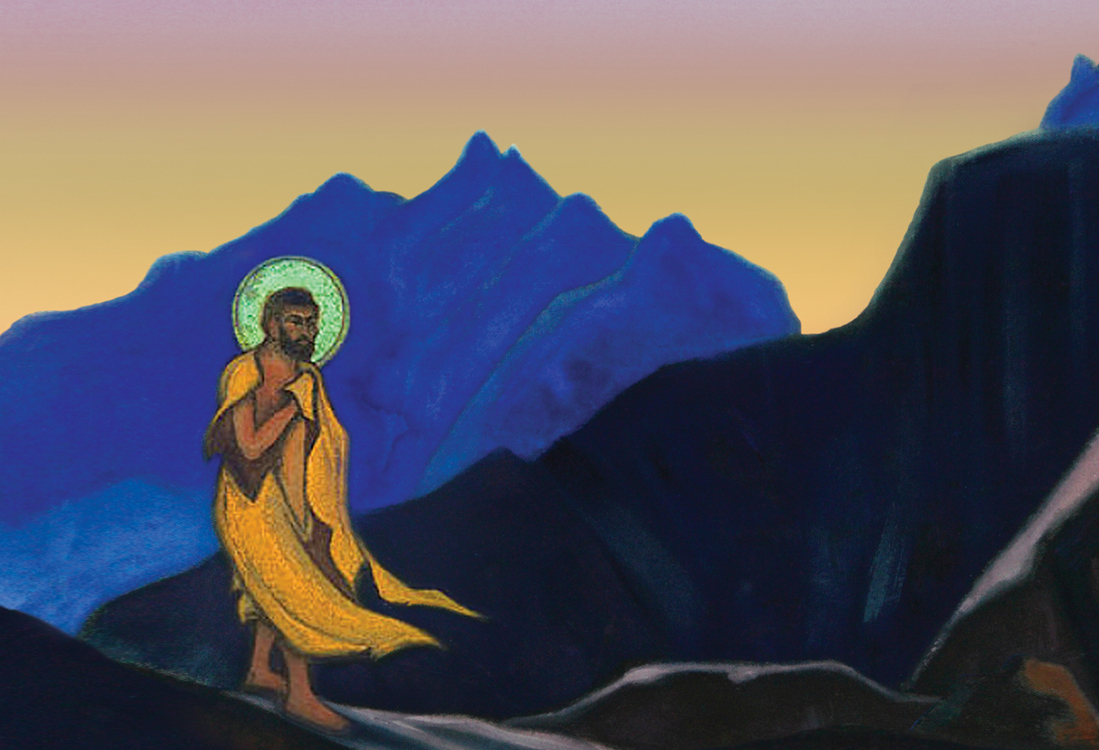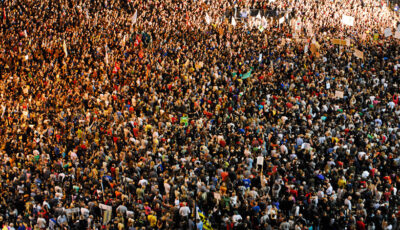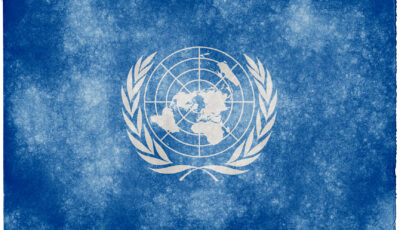We are unable to seriously envision a new economic paradigm for managing the earth’s shared resources, unless we first contemplate the need for a psychosocial transformation across the world, whereby the awareness of the average person is expanded to embrace the common good of humanity as a whole. By Mohammed Sofiane Mesbahi.
Contents:
Editor’s preface
Introduction: A wider lens of perception
I. Obstacles to awareness
II. Rising up for Article 25
III. Releasing the spiritual attributes of joy
Diagram: Education for new laws of the commons
IV. The danger of ‘isms’ and intellectuality
V. A commons-oriented education
VI. Investigating the inner commons
Concluding remarks
Endnotes
Editor’s preface
.
This work, which forms part of Mohammed Sofiane Mesbahi’s series of studies on the principle of sharing, is a unique investigation into the meaning of the commons. Some introductory words on its composition may be helpful, considering the unusualness of its approach in comparison to other writings. What it offers is not an academic interpretation of the commons as a social practice of governing shared resources. A growing library of literature is available elsewhere that introduces the subject along these more theoretical lines. As shall become clear, Mesbahi explores a much broader understanding of what the commons ultimately signifies for the advancement of our human race. From the outset, therefore, the reader is encouraged to adopt a spirit of open-minded, mutual enquiry with the author.
However, it should be stressed—as Mesbahi himself states in the book—that his intention is by no means to contradict the contemporary notion of the commons (despite acknowledging its limitations). Rather, he is attempting to investigate the missing part in most of these analyses and proposals: what he describes as the ‘inner’ or ‘holistic perception’ of the commons that depends upon ‘a certain spiritual awareness that is latent within each individual’. To this end, special consideration should be given to the repetition of certain themes which are intended to provoke the reader’s own subjective understanding and intuition.
Like all Mesbahi’s previous publications, the major theme concerns the ending of life-threatening poverty via an international emergency programme under the auspices of the United Nations. This, he explains, is the preliminary basis for bringing about an awareness of the commons that can be sustained by the entire world population. But his investigation goes further by exploring the faculty of perception that is required to inwardly experience the spiritual meaning of the commons. What’s more, he outlines the need for a new form of education that aims to bring about such an awareness through an understanding of the Ageless Wisdom teachings.
What you are about to read is therefore difficult to categorise as a political or philosophical discourse or even a spiritual teaching per se, although it fuses all of these elements. And in explicating the profoundest significance of the commons as ‘an eternal divine reality’, Mesbahi proposes an introspective mode of self enquiry that may long benefit us all in these crisis-stricken times.
London, UK, January 2022
Introduction: A wider lens of perception
The commons has a very, very ancient past in the consciousness of man, and it was born of an incipient awareness of the One Life, a spiritual vision of evolution, and above all compassion for all that is… Therefore the real question is not how to bring about the new economic and social arrangements that can sustain the outer commons; rather, the question is how we can bring about the inner perception of the commons that perennially exists, which has always depended upon the ancient injunction: know thyself.”
.
The traditional idea of the commons is undergoing a major revival in the 21st century, with a newfound meaning that goes far beyond the old notion of communally shared pasture lands. In our time, the commons is generally promoted as a new theory and praxis of sharing resources that encompasses every aspect of modern life, from the environmental to the social, cultural, intellectual and digital spheres. There is now much discussion among progressive thinkers of the commons as a ‘third sector’ in society that transcends both the market and state; as an alternative political philosophy that challenges the dominant ideology of laissez-faire economics; even as an approach to wholesale system change based on self-organised forms of governance. All these discourses and proposals are vitally relevant as a response to the world’s problems, and deserve the utmost consideration from those who seek answers for how to co-create a sustainable future.
But there is another way of trying to understand the meaning and significance of the commons that requires an inward investigation, which cannot be helped by any conventional analyses of this subject through studying academic literature. Let us begin by positing that the commons has a divine origin which is inextricably connected to the ageless principle of sharing, although the comprehension of this essential truth demands a wider lens of perception than the usual modes of thinking and action. We cannot embrace the greater import of the commons through a belief-in-a-belief, but must rather perceive it for ourselves through inner awareness and self-reflection. For as we shall discover, the existence of the commons is not only material but also spiritual in its nature. And a universal appreciation of its profoundest nature has the propensity to unite humanity on the basis of maturity, vision and common sense towards a just and non-divisive society, wherein the individual is motivated to serve with an inclusive attitude of reverence for both their social and natural environment.
In accordance with this broadened interpretation, one may also perceive the eternal reality of the commons as being intrinsically linked to self-knowledge, and its highest meaning can be described as God-given or spiritual education that encompasses the good of the whole. Whether we understand the commons in these more holistic terms is therefore a question of our level of consciousness, as it relates to the expression of goodwill and loving awareness that stems from the particular to the whole, and from the whole to the particular. By this definition, the challenge of upholding the commons should really be considered as a problem of our individual and collective awareness, since humanity appears to be far from accepting that nothing belongs to anyone, and that all the produce of the earth must be cooperatively shared and protected by all. Indeed the commons is often described as all that we share, but perhaps it is more accurate to define it in the present day as all that humanity does not share. For in truth, the significance of the commons concerns much more than sharing our common wealth, protecting our common heritage or promoting the common good; it is ultimately the gateway for humanity to progress and evolve within the sovereignty of every nation, and in line with the destiny of all the kingdoms of nature. To truly uphold and glorify the commons on this earth will mean that humanity is all together in existence for one goal, and that goal is spiritual evolution.
Henceforth the purpose of our investigation is to discover what is holding back this imperative spiritual awareness of the commons, and to try and perceive for ourselves what could bring about such an awareness on a planetary scale. We also need to examine from many angles the relationship that exists between the holistic meaning of the commons and the principle of sharing, for both are so versatile and interconnected that they can easily be mistaken as one and the same. Much of the problem lies in our education, as from the earliest age we are not taught to look at life from the perspective of the particular to the whole, and vice versa. If a child in Europe learns about the countries of Asia and Africa, for example, they do not study the psychological relationship that exists between the people of those continents and humanity as a whole. Instead, the humanities and social sciences are typically studied only from the viewpoint of the particular, in relation to one’s own nation, race or specific culture. Throughout our schooling and the subsequent course of our adult lives, our social environment does not encourage us to adopt a psychological relationship between our own reality and the lives of other people across the world, especially those who are less privileged than ourselves. This is starkly reflected in public debate and political discourse that seldom if ever responds to world events from the perspective of an interdependent, inherently equal and spiritually non-divided human race.
As a result of our social conditioning and inadequate modes of education, we are not inclined to experience a compassionate response when we hear that people are living in desperate poverty in distant countries. Yet humanity is the commons too, as much as the land, oceans, forests and atmosphere. Thus to allow a person to die from hunger is also to allow a part of our commons to be desecrated and tragically forsaken. Through the most expansive spiritual lens, we could even say that humanity is God’s commons, in which case a crime against humanity is equally a crime against the commons as it eternally exists. To be sure, the very existence of poverty in a world of plenty represents the tragic negligence of our common wealth. There is a common sense to such an understanding that again requires us to examine this subject not only outwardly or from a purely intellectual understanding, but also psychologically and introspectively from within ourselves. If our awareness is limited to the psychological relationship that we have with our own family, community, culture, creed or nation, then how can we uphold with goodwill and empathetic concern the common good of One Humanity?
When considered from the perspective of our infinite spiritual evolution, the commons is only a meaningful idea if it means that you and I are together, no matter our colour or position or country of birth, and we are looking after everything that exists with reverence and love, which naturally includes one another as well as the environment around us. Hence the commons relates to much more than intellectual conceptualisations of sharing and cooperation, for it is also a dynamic and transcendent expression of love. And that love has to be extended across national borders to encompass every person, every region and every living thing of nature until human awareness has expanded to identify with ‘everything that is’ in the phenomenal universe. Can we hereby foresee from our intuition how long it may take before humanity spiritually unfolds and, in so doing, enables the commons to manifest in all its glory?
Thus in basic psychological terms the commons can be defined as harmlessness, loving attention and awareness of the whole. And in the highest spiritual terms, the awareness of the commons means identification with all that lives and evolves, or with the whole of nature’s existence. It means that to look at a tree is to become that tree, which would make it a sacrilege to destroy it for mere convenience or purely material gain. It also means that to observe a tree’s leaf, with such awareness and identification, is to perceive how that single leaf represents the sacredness of all life within creation. Obviously it doesn’t mean that the commons can be protected by merely recycling our food waste and product packaging, which is often the extent to which many people believe they can respond to environmental concerns. Only the relatively few think in terms of the common good of One Humanity and its spiritual evolution, or the commons that belongs to the world as a whole—as palely reflected in the many campaigns surrounding climate change and global ecological issues. Still by far the majority of people limit their awareness of commons-related issues to the level of their household, if they think of these issues at all. Even in this respect, we are again compelled to realise that the commons can never be upheld on a worldwide basis until human awareness has dramatically expanded to relate one’s own small affairs to the greater whole—for the challenge of upholding the commons is fundamentally a problem that pertains to the level of our individual and collective consciousness.
We may therefore conclude that the commons can only flourish if born of right education that gives everyone a broadened sense of our spiritual identity and planetary interdependence. And for this reason, an entirely new type of education is required that is no longer confined to the use of memory and intellect, or otherwise constrained by a nation-centric view of culture and history that examines social progress through the lens of power, class and privilege. We also need a far more holistic form of learning than generally exists today, one that inculcates an awareness of the inner self within a child, and eschews the prevailing values of contemporary society that are defined by competition, conformity, and the individualistic pursuit of wealth and success. In this way, any vision of the commons as the underpinnings of our future civilisation must include an education that is aware of the spiritual evolution of humanity, which entails knowledge that is currently far in advance of what mainstream science has discovered. As we shall go on to explore in further detail, the urgent need for a new education along these lines is of momentous importance in bringing about a just and sustainable society, as it is the only way that humanity can realise the benefit of living together in harmlessness, simplicity and right relationship, and with the aforementioned reverence towards nature that is based on identification with ‘everything that is’.
By the end of our enquiry, hopefully the reader will be persuaded that the commons should not only be approached as a specialist or academic subject, but foremost as a divine conception that can bring an individual close to wisdom. To begin thinking of the commons in planetary and spiritual terms is at once the reflection of wisdom, since we cannot conceive of the good of the whole without beginning to forego our conditioned prejudices concerning any particular race, culture or nation. To truly understand the highest meaning of the commons it is also necessary to appreciate humanity’s relationship to all the kingdoms of nature, which includes the spiritual as well as the mineral, vegetable, animal and human kingdoms.[1] It is solely from this holistic and inclusive vantage that the commons can be described as God-given education, because to comprehend its meaning is to become aware of our oneness with nature and evolution, which in itself is the true definition of self-knowledge and wisdom.
I. Obstacles to awareness
.
No matter how passionate we may be about the prospect of recovering and upholding the commons, we are soon faced with a maze of obstacles that stand in the way of spreading such an awareness to other people. Our problem is rooted in the deeply entrenched and divisive thinking of society based on property rights and self-interest, which can be understood as the greatest impediment to realising a spiritual or sacred conception of the commons—indeed, the very word ‘profit’ is anathema to the commons as holistically understood. Observe how cleverly the profit-based system of economy has achieved its ends, and how it was born and propagated over many centuries. Not so long ago, wealthy aristocrats used the pretext of taxes and legal rulings to divide the commons that was still naturally in existence, thereafter declaring certain lands as private property regardless of the fact that it was effectively stolen from its erstwhile inhabitants. Elsewhere in the world, many indigenous peoples lived in harmony with nature and the spirit of all things, until the so-called pioneers came along and dispossessed these native populations for the sake of controlling and later partitioning a formerly borderless land. Throughout human history in almost every culture and world region, the commons has been brought to its knees through individual or group selfishness, violent seizure or legitimated theft, and above all through the pursuit of material gain and commercial profit.
Still today the same divisions are continually perpetuated on a societal basis through lawful thievery or illicit occupation, in which an acquisitive individual, group or nation declares that a certain land or resource belongs to them, and then attempts to drive out any existing occupants that stand in their way. Even if the Bible states that a piece of land belongs to one particular race, how will those people claim it for themselves without conflict and bloody violence? We all know the truth in our hearts, however deeply this truth has been suppressed through centuries of social conditioning and an inadequate education: that nothing belongs to anyone, including the oil and other natural resources that are given freely by Providence for all humanity to cooperatively share and protect. So how can a domineering party emerge and declare ‘this is our private property and our legal right to possess’? Could any family or organisation prove that the immense wealth in their possession was entrusted to them exclusively by God, and wasn’t once seized by force or statute from Mother Nature or earlier inhabitants?
Furthermore, could any of the most industrialised nations prove that their level of material affluence was predestined or vouchsafed by divine decree, and not achieved without the violent seizure or exploitation of resources in distant lands? The very notion of colonial acquisition is an affront to the existence of the commons, as is the concept of territorial sovereignty—at least when observed from the spiritual and holistic perspective that we are here attempting to investigate. When perceived in the most inclusive sense possible, it is ridiculous that the United Nations must even conceptualise the meaning of international waters, for example, when by implication a country can exploit the waters in its boundaries without due consideration of humanity as a whole. Nothing truly belongs to anyone, which makes it impossible to understand the profoundest meaning of the commons without first acknowledging the wrong turn that humanity has taken in trying to possess, control and exploit nature (and of course each other) in the pursuit of profit and selfish material interests. Any history book will attest to this long and sad story of humanity’s self-inflicted division and destruction, which fatefully continues in the guise of aggressive foreign policies that should be considered the modern-day antithesis of the global commons. As long as these power games of empire building and resource grabbing continue to determine the trajectory of world affairs, there is evidently no prospect whatsoever of the commons manifesting in line with our planetary spiritual evolution.
Over the course of recent decades, commercialisation is the malefic element and dark force that will resist with all its might the flourishing of the commons on this planet till its last breath. The all-pervading forces of commercialisation fit in very well with an antiquated economic system that was built upon theft and injustice, whereby the many laws and regulations are intricately administered for the benefit of a privileged elite. Yet we are all the sons and daughters of commercialisation in many respects, as we all must conform to the rules of a divisive society that has millions of defences to prevent the commons from proliferating itself. Nowadays empowered by countless archaic laws and ever-multiplying property rights, commercialisation is like a pilotless tank that moves from place to place and obliterates the commons wherever it exists. To illustrate this observable fact, we need only imagine a beautiful plot of land that was freely enjoyed and maintained by a community for hundreds of years, until a property developer is granted the rights to demolish it and instead build high-rise apartments for an exorbitant rent.
How then can we reclaim the commons in the context of a society that idolises the profitmaking mindset, and when relatively few people are aware of the danger that rampant commercialisation represents? Surely we can never succeed while the values of profit and materialism are infiltrating every aspect of society, pushing us to consume endless products and services through a globalised marketplace. Not only is the commons being suppressed by a lack of education and awareness among the wider populace, it is also being slowly eliminated altogether by the activities of multinational corporations which will stop at nothing to extract profit from the last vestiges of our planet’s natural wealth. In consequence, the fight to protect the environment remains a mess of contradictions, so long as the majority of humanity are willing participants in the systemic processes that are escalating our crusade to self-destruction.
After several decades of following this hazardous path, we have led ourselves into a blind alley through the combination of these two factors—namely, our collective complacency and the forces of commercialisation—which are the sum total of all that prevents humanity from spiritually evolving with loving attention towards nature and all that lives. The traditional commons may have originally perished due to the self-interest of domineering nations and the acquisitiveness of a privileged elite, but the prospect of newly establishing a commons-based mode of social organisation is more difficult than ever now that commercialisation has been facilitated by the unwitting complicity of the general populace. Let’s not forget that we are all implicated in the destruction that is perpetrated on the various kingdoms of nature, and it is our general unconcern that has led to a situation in which millions of people are needlessly dying in extreme poverty each year, regardless of the tremendous wealth and luxury that is everywhere flaunted by affluent society.
When we observe the inner or psychological causes for the world’s problems, it is the underlying motivation to become a ‘somebody’ and achieve social recognition that is as much to blame for desolating the commons as the outward pursuit of profit, power and wealth. Through our inadequate modes of education and our susceptibility to commercialisation in its myriad forms, we are easily conditioned to think only of ourselves as individuals and our materialistic desires, often without any awareness of the broader spiritual crisis suffered by humanity at this decisive point in time. Hence the complacency or sheer indifference towards establishing right relationship among all peoples and nations, let alone the prospect of reviving the commons as a new way of living and organising society. However motivated and inspired we may be with this high-minded ideal, we cannot put our case to an unresponsive society—even if we are talking about their world too, as well as the lives of their grandchildren to come.
Many critics may contest that our modern society is much better off financially than ever before, but this is an ignorant and dangerous statement when we observe the harm that commercialisation has already wreaked throughout the world. In reality, it is not the goodwill of governments that has increased the wealth and material comfort of millions of people, but rather their unleashing of market forces which has also led to the dominance of profit and competition in every area of our lives. And it is the money-oriented values of commerce that have caused the abrupt degradation of the environment since the 1970s onwards, as anyone can confirm by observing the wasteful patterns of global consumption that are patently destructive and unsustainable, and yet still continue to be encouraged for the sake of growing each nation’s economy. We may have access to more material goods than at any other time in human history, but what lasting benefits will these countless products bring us if we finally overreach the natural resource limits of the earth? In an overpopulated and excessively commercialised society, you may be better off today but you will certainly be worse off tomorrow. For the more people there are in the world who are busy making lots of money and pursuing a luxurious lifestyle, the more disinterest there will be about the impending fate of both society and the environment. And as long as these same trends accelerate due to the part we all play in sustaining the present socio-economic system, it will remain impossible to uphold a vision of the global commons within all its might and beauty. Until in the end, the coming together of nations in a cooperative bid to save the planet will become an implausible fantasy, and human evolution will tragically suffer the inevitable result.
So even if we ourselves understand that the commons must again flourish to ensure the future survival of humanity, the question remains as to how we can communicate our far-reaching vision to the public at large. How can we begin to fight the maze of ancient laws, the destructive forces of commercialisation, and the apathy of millions of people who have no interest in what we have to say? We will only make our task more complicated by trying to fight against the multinational corporations and influence their attendant politicians, when it is the masses of ordinary citizens who represent our greatest obstacle and challenge. It may be theoretically possible for all the commons advocates to surround their governments and pressure them to reform certain market-based laws or pro-corporate policies, but who is going to surround the complacency and indifference of the wider populace? Environmental groups have already done an admirable job in creating a planetary awareness of our worsening climate and ecological crises, but the concept of the commons is of a higher calibre that requires a completely new way of thinking about our relationship to each other and the natural world—a relationship that apparently cannot be understood by the lower calibre of our existing governments.
Thus we are unable to seriously envision a new paradigm for managing the earth’s shared resources, unless we first of all contemplate the need for a psychological and social transformation across the world, whereby the awareness of the average person is expanded to embrace the common good of humanity as a whole. Otherwise, our efforts to promote the commons will continue to crash against an impenetrable wall of commercialising laws and policies, as reinforced by the politicians with their profit-making mindset and the implicit consent of a submissive public. We may continue to write articles and further intellectualise our laudable proposals, but we will be talking to a small audience of converted supporters until the commons eventually sounds like an obsolete language studied only by eccentric academics.
.
Thank you for reading this sample chapter. Click here to purchase the printed book from our online store
[1] Each kingdom in nature grows from the one below it, and a fifth kingdom higher than the human—known as the spiritual kingdom or ‘Kingdom of Souls’—has always been with us (as taught by Christ Himself), and is now gradually precipitating on the physical plane. As explained in the writings of Alice A. Bailey, that kingdom is ‘composed of all those who down the ages, have sought spiritual goals, liberated themselves from the limitations of the physical body, emotional controls and the obstructive mind. Its citizens are those who today (unknown to the majority) live in physical bodies, work for the welfare of humanity, use love instead of emotion as their general technique, and compose that great body of illumined Minds which guides the destiny of the world.’ (The Reappearance of the Christ, Lucis Press Ltd, p. 50).
See the print publication for further endnotes.
Mohammed Sofiane Mesbahi is STWR’s founder.
Editorial assistance: Adam Parsons.
Image credit: Liamfm, flickr creative commons





